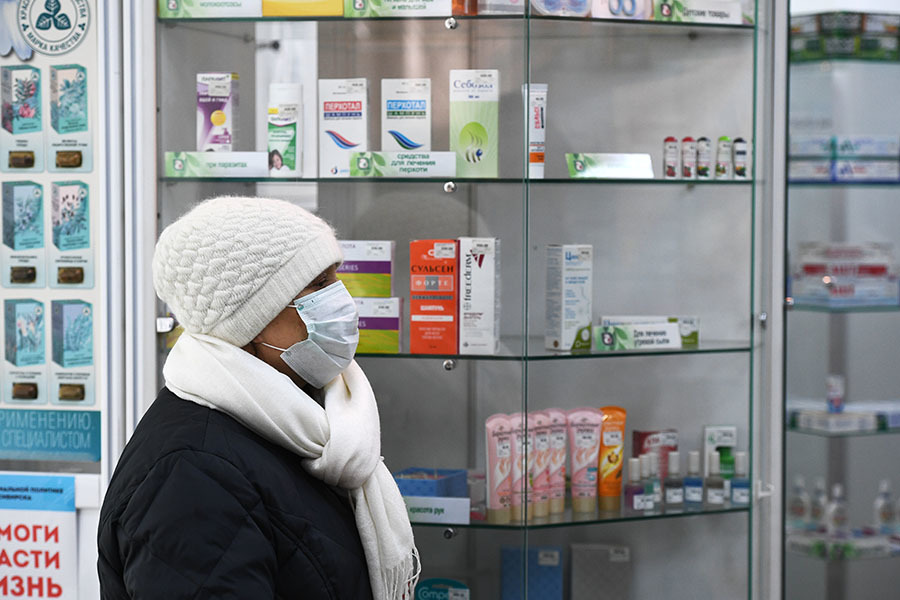The head of the Ministry of Industry and Trade of Russia Denis Manturov announced the temporary transfer of the drug labeling system to a notification mode against the backdrop of increased demand for drugs.
According to him, currently, there are still unresolved problems associated with the insufficient technical readiness of distributors and a number of pharmacy organizations to work with labeled drugs.
“While wholesale and retail are solving these issues, we with colleagues from other departments, taking into account the peak of increased demand, decided to temporarily transfer the drug labeling system to a notification mode in the pharmacy and distribution segments,” the minister said in a statement.
According to him, such a decision will allow the sale of medicines immediately, "without waiting for a response from the labeling system."
“Accordingly, there will be no delays for citizens in purchasing medicines.
Having come to the pharmacy, they will be able to choose a medicine in their usual way, pay for it and immediately receive a purchase, ”Manturov said.
As a reminder, since July 1, Russia has compulsory labeling of all drugs.
The purpose of the introduction of this system is to trace each package of a medicine from the moment of production or import to Russia to the sale to the end customer.
The law regulating the timing of the entry into force of the labeling was passed before the coronavirus pandemic, in December 2019.
RIA News
© Alexander Kryazhev
According to the Ministry of Industry and Trade, 77 thousand organizations are currently working in the drug labeling system, there are more than 1 billion packages of labeled drugs.
At the same time, the share of labeled drugs on the market today does not exceed 10-15% of the total volume, taking into account the presence of unmarked residues.
The ministry stressed that their presence in circulation at the moment is "absolutely legal and does not carry any risks for market participants."
Earlier, on October 17, the Ministry of Health said that against the background of the COVID-19 pandemic, it is constantly monitoring the availability of antiviral, antipyretic, antibacterial drugs, including those used to treat a new coronavirus infection.
“In a number of regions, there is a rush of demand in pharmacy organizations.
Medical institutions do not experience a shortage of drugs, ”the department said.
The message from the Ministry of Health also says that the Ministry, together with Roszdravnadzor and the operator of the labeling system, promptly respond to requests from turnover participants and patients in order to ensure the stability of drug supply.
In March 2020, the Association of Russian Pharmaceutical Manufacturers (ARFP) made a request to introduce a "stop time" for the period of restrictive measures on the introduction of drug labeling from July 1.
The organization explained that due to the restrictions imposed on the background of the coronavirus pandemic, specialists from equipment supplying companies cannot come to Russia to carry out commissioning.
At the same time, Russian specialists also cannot travel abroad to receive individual pieces of equipment and undergo training.
The organization indicated that the launch of the system without adjustment “will lead to system failures and destabilization of drug supply” in Russia.
“In this regard, the industry asks to introduce a“ stop time ”for the preparatory period until the end of restrictive and quarantine measures.
"The stop-time period should be added to July 1, so that we have the opportunity to humanly adjust the equipment and move on," the ARFP said in the appeal.
Irina Bulygina, a pharmacist and expert on the Russian pharmaceutical market, said that the drug labeling system in Russia was introduced in a hurry, its conditions changed dynamically.
“At first, people bought equipment on the assumption that the QR code would contain eighty-eight characters, then they were reduced to forty-four, the expiration date was removed from there, and this is generally the main indicator of drug verification.
And it is clear that when there are several months left before implementation, and the conditions change for you, this cannot but negatively affect the entire system, ”said Bulygina.
According to her, the current decision to switch the system to a notification mode should help the situation, since this decision "actually removes the last retail link from the blow."
“They can take and sell medicines and it will not be considered a fake,” Bulygina concluded.

